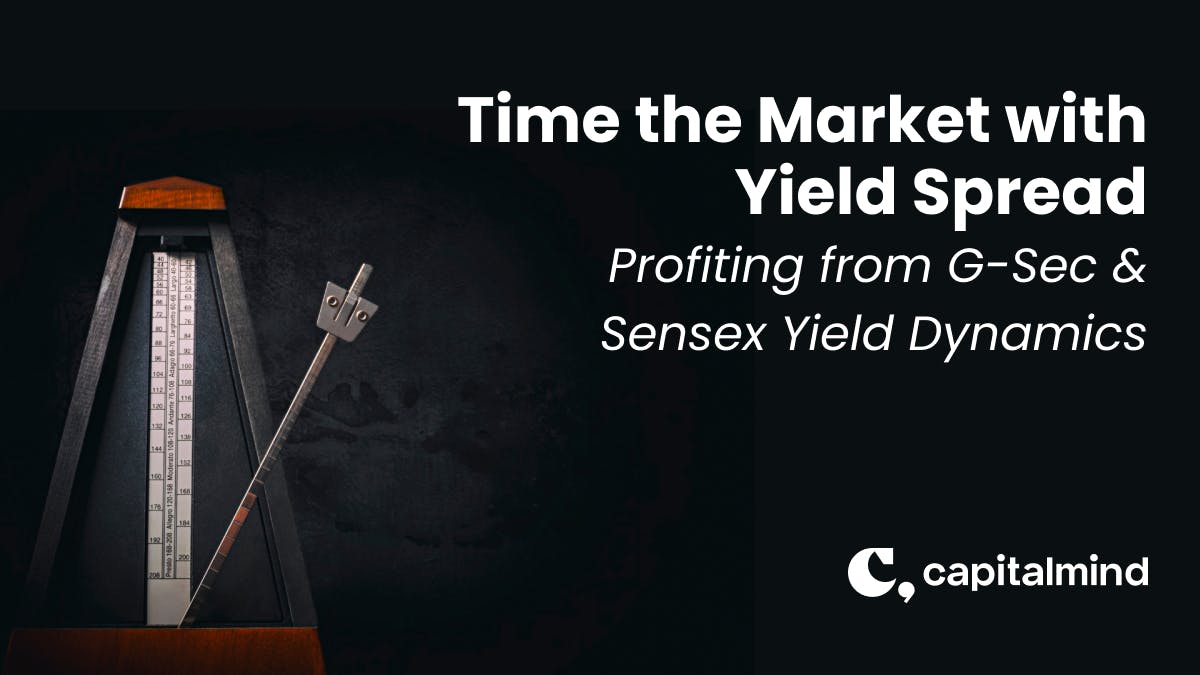(category)Commentary
Debt Mutual Funds will be taxed unfavourably after April 2023Debt Mutual Funds will be taxed unfavourably after April 2023
The finance ministry has just delivered an inswinging yorker to the debt mutual fund industry. For long term investments made starting April, one major tax advantage has been removed. We decode the implications, what you might want to do, and why debt funds remain interesting.
Deepak Shenoy•

If you don't understand cricket, this will sound meaningless, which is exactly what that change sounds like if you don't invest in debt mutual funds. But for those that do, here's what's come about. First, we get this grainy release from an "amendment" in the budget finance bill. This was introduced on 23rd March 2023, just a few days before the financial year ends!
Which basically changes this particular clause to mean, and I've put them up in bold:
Whoa! All Debt Mutual Funds will see only short-term capital gains tax?
Yes. Any purchases after 1 April 2023, when sold, will see only short term capital gains tax. For such funds it means the gain is just added to your income.
There is no long term capital gains tax on such funds anymore, and this applies to:
- Debt funds - from liquid to ultra-short-term to long-term or gilt funds
- Funds that invest abroad, because anything abroad is not Indian listed equity shares
- Gold or Silver funds
- Target maturity debt funds which were popular recently to buy funds of a certain maturity date
- Fund of Funds even if they invest in equity funds (such as a mutual fund that invests in a combination of equity funds)
- Conservative hybrid funds which typically have less than 35% in equity funds
Note that this only applies to fresh investments (additional or new). Your current investments continue to benefit from the lower capital gains tax and indexation benefits, no matter when you sell them. In fact, since the rule only applies after April 2023, you have a few days to buy debt funds that get the favourable treatment.
How bad is the tax difference?
Currently, if you hold a debt fund for more than three years, you get long term capital gains tax on your gains. Which means:
- You pay tax after subtracting inflation on your profits, and
- You pay a lower 20% tax only
For example, if you've held a 100,000 rupee investment for three financial years, and made Rs. 25,000 profit on its sale, your taxation is on long term capital gains. The profit itself is reduced by inflation; if inflation was 5% a year, let's assume 15%, or Rs. 15,000 (on Rs. 100,000 invested) for three years.
So you only make a taxable profit of Rs. 10,000 which is taxed at 20% = Rs. 2,000 tax.
You made Rs. 25,000 but paid a tax of only Rs. 2,000. At just 8% effective tax, no matter how much money you made, this is a fantastic deal.
Versus, short term capital gains for such funds is just added to your income. If you're in a high enough tax-slab, you will pay upwards of 34% tax on your gains.
You will move from what is an effective 8% tax to 34%. Even fixed deposits, where you get interest every year, are taxed as income. So there, you pay the higher rates, even if you have a long term fixed deposit.
Why have they done this now?
The finance ministry had earlier closed a loophole that involved Market Linked Debentures (MLDs) which were treated to only 10% capital gains tax (no indexation) if sold after a year. Now, they've closed the loophole for debt mutual funds as well. In the crossfire, all other types of mutual funds are stuck too - those that invest in foreign equity, gold and indeed even those that have a LOW exposure to Indian equity.
Why now? We don't know. The budget was on Feb 1, and doing a major change on March 23 is a little weird. But all is fair in love, war and changing tax rules.
There are many reasons we can attribute for this, but the most obvious one is: the high advantage of debt funds in taxation for HNIs. As shown above, the tax that an HNI pays is 8% of gains today if a fund is held for 3+ years, versus 34% for a bank FD.
To plug this huge advantage, this rule has come by, we think. Of course, you could say it's a conspiracy by insurance companies and banks etc. because that's more fun to hear.
How much money is in debt funds?
Let's look at the debt territory. We'll divide them into:
- No impact: Equity funds (large, mid, smallcap etc), Balanced Advantage and Aggressive Hybrid funds (which have more than 35% equity) are not impacted at all.
- Low impact: Liquid, ultra-short, and low duration funds tend to be held for a very short term, so the impact here isn't much. Floaters, Money Market and Overnight funds too, similarly have a low impact.
- High impact: Corporate bond, Gilt, Debt Index funds, Short/Medium/Long duration funds are heavily impacted. Other categories include Gold funds, Dynamic bond funds, Credit risk funds, Fixed Maturity Plans.
The other thing we have to do is to divide this universe into who owns these funds. Banks, Financial institutions, trusts and corporates are the largest owners of debt portfolios and for them, this tax difference is unlikely to be a pain. Because they don't tend to own funds for three years. The problem is largely for holdings by HNI and Retail. We've obtained data for this split, by HNI and retail investors through a proprietary source.
Roughly 19 lakh crore is in mutual funds by HNI+Retail and of that 13 lakh crore is in equities or funds in which there is no impact.
Of the remaining, only 300,000 cr. seems to be in funds that will see an impact. Most of that money, too, is in Corporate Bond Funds, Fund-of-funds, Target maturity index debt funds and a few others.
Some fund types are quite heavily HNI/Retail oriented, like Fund of Funds, Conservative Hybrids and Credit risk funds. Many others have a large amount of AUM from individuals, so they will hurt in terms of gathering new AUM. The AMCs will now have to show more performance than depend on the tax arbitrage.
What should I do? Sell funds? Buy others?
The only thing to consider is: if you wanted to buy a debt fund but were waiting, do it before March 31. That way, that investment gets the long term capital gains tax treatment after you sell in the longer term (March 2026 or longer). Note that this means you have to hold these investments for three years.
Another thing: debt funds bought after April 1 can be done in a different folio. (For demat holders only one folio exists, so ignore this paragraph) If you buy funds in non-demat mode, then you can have a different folio for the same mutual fund. I use this to segregate purchases earmarked for different reasons (each kid's pocket money, for example) in the exact same fund. Now, you can create a new folio for fresh investments. This allows you to withdraw funds, if you need them, from whichever one has the lower tax impact (in the near term, the new folio will have a lower tax impact because gains are lesser)
The simplest thing to understand is this: taxes change. You need a debt allocation if you're going to be taxed at exit that's how it will be. Whether it was EPF (now taxed when it's more than 2.5 lakh per year), ULIPs (similar taxation), Insurance policies (beyond 5 lakh a year) or now debt funds, we have been seeing the "low tax" advantage go away.
What this tax does is: defer taxes to later. This is the way taxes will go - exempt or lower taxation shouldn't be expected to last too long. The idea is: defer tax till you're in a lower tax bracket. So invest accordingly.
Does it make no sense to use debt funds at all?
Actually, it does. There are three reasons for it.
The first is that you are not taxed on accruals. In an FD, all interest is taxed regardless of whether you use it or not. A significant number of people don't use the entire interest they receive, they just reinvest it. This reinvestment is at a cost: apart from the 10% tax deducted at source, you must pay additional tax on this income (upto 39%) if you're in a higher tax bracket anyhow.
That means an 8% fixed deposit, to a person in a 34% tax bracket, is only 5.3% post tax, and only that much is reinvested, effectively. For the same return (8%), even if you pay tax at the very end in a mutual fund, you make 4% more in a mutual fund over 10 years, and 20% more in 20 years. For retirement level planning, a debt mutual fund is a definite plus for fixed income allocation.
The second is that's it's way more tax-efficient to generate income, even now. See our video to understand this better (though some of it has to change now with the new tax rules) If you park, say, Rs. 1 crore, in a debt fund versus a fixed deposit, both of which give 7.5% a year. That is 750,000 a year of income, and let's say you're in a 20% tax bracket. You can do a withdrawal of the interest earned out of the fund each year, and a mutual fund will still earn more, net of tax, for a long time. Here's how it changes for 10 years.
Remember, deferring tax is great. You will pay the tax later, by which time the value of every rupee would have gone down due to inflation, so the same rupee paid later is an advantage.
The third advantage is that you can offset capital gains income by temporary losses. While many of the simplest loopholes in generating capital losses (bonus stripping etc) have been removed, there are still many losses that could be used to offset gains. You can still sell stocks that are currently loss-making, but you want to hold for the long term, and buy them back the next day. The booked losses can be used to offset any capital gains. (Book short term losses only, because long term losses can only be offset with long term gains). For some of you that have invested in startup companies that have shut down or gone bust, you can sell the shares for a pittance to a friend, and record the loss. You need to sell, because otherwise the loss is not recognized.
Debt funds are still attractive vehicles for shorter term debt. Because banks give good fixed deposit rates in the longer term tenures (1 year plus) but for a 6 month deposit, rates are way below even government T-Bill rates most of the time. For those, it makes more sense to invest in a short term fund product.
Aren't mutual funds going to lose a lot of AUM?
Not immediately, because it makes no sense to sell debt mutual funds that you own. However, incremental AUM increases may be limited because of the increase in taxation.
However, there has been a very large tax difference in the past, so a lot of debt funds were invested in even though they weren't giving great yields, simply because of the tax advantage. This will no longer be the case - funds will be attractive based on returns.
Current Total Expense Ratios, especially in regular plans, are relatively high for debt funds. Many medium duration funds charge more than 1.3% for regular plans and 0.80% for direct plans - which are equity level fees. Even if the yields are a little higher than 8% today, after their fees, you will receive only 7% or so, which is way lower than a fixed deposit or a corresponding index debt fund post fees. These fees will either have to be compensated by higher returns, or AMCs will have to lower their fees to show returns - given that the tax advantage isn't as much a selling point anymore.
Also, because of that, we should see corporate bond yields rise in the coming months. If funds can't raise much more AUM in debt funds, the yields that corporates pay for their bonds should see an increase. Because reduced demand will mean that prices fall, which means a higher yield.
Wait, Gold, FOF and International funds also?
Unfortunately these funds are caught in the crossfire, through the language of the bill. This means fresh purchases in Gold funds or international funds will not qualify for long term capital gains.
Fund of funds - those that invest in other funds - will be hit similarly. Regardless of whether the funds they invest in are equity funds or otherwise.
Are there better alternatives to debt funds in fixed income?
Honestly, this is one place a ULIP (I know I've hated these plans before) might start to outperform. ULIP investments are locked in for five years, and taxed at 10% of profits (no indexation) on exit. For a premium of less than Rs. 2.5 lakh per year (in total across all ULIPs), there is no tax at all on maturity. There are apparently a bunch of new ULIPs that offer very low cost funds with only management fees, but these fees are high at 1.35% or more. The high fees may offset the tax gains, but it might be useful to consider them for longer term fixed income allocations now.
Also, check out NPS Tier 2 investments. There's no limit on these and exits after 36 months still have indexation benefits and 20% tax. The fund options allow for GSec and Corporate bond investments with no equity. With no lock-in, this might be a better bet, tax-wise, going forward.
There is of course the PPF that remains the best way since returns are not taxed at all, but is limited to additions of 1.5 lakh per year. Limits (2.5 lakh) apply on EPF too.
What are we doing at the Capitalmind Wealth PMS?
We have a debt portfolio at Capitalmind Wealth PMS and we are:
- Moving some money from short term funds to long term funds before March 31
- Because we were planning to do this in April anyhow (to avoid tax in March)
- And doing it now allows a longer term holding to not attract tax.
Of course, there are certain portfolios which need short term debt only (like a Systematic Transfer Plan where we transition to equity over a few months) which won't change.
So the summary:
- New purchases of debt funds after April 1, 2023 won't be allowed to index for inflation and will be taxed as short term capital gains tax.
- This means don't sell your current debt funds in a hurry
- This also means if you want to make long term debt allocations, do them before March 31
- Around 3 lakh crores in AUM is impacted, which is not huge, but these funds have a fairly large retail+HNI holding in them
- We might see debt funds try to increase returns through a higher cost to the corporates that borrow, or through a lower fee structure.
- Debt funds still stay attractive for three reasons: accruals are not taxed, you can generate more tax-efficient income, and you can offset the capital gains (short term) with losses.
- Alternatives are low cost ULIPs and NPS Tier 2 investments, both of which have favourable tax treatment.
- This is largely being done to plug loopholes but the category has been impacted as a whole. It still remains a good way to build fixed income investments.
In general, don't keep taxes as the only criteria to invest, but if appropriately grandfathered, you can assume the current taxes will continue to apply for any investment you make now.
Related Posts
Make your money work as hard as you do.
Talk to a Capitalmind Client AdvisorInvesting is not one size fits all
Learn more about our distinct investment strategies and how they fit into your portfolio.
Learn more about our portfoliosUnlock your wealth potential
Start your journey today








